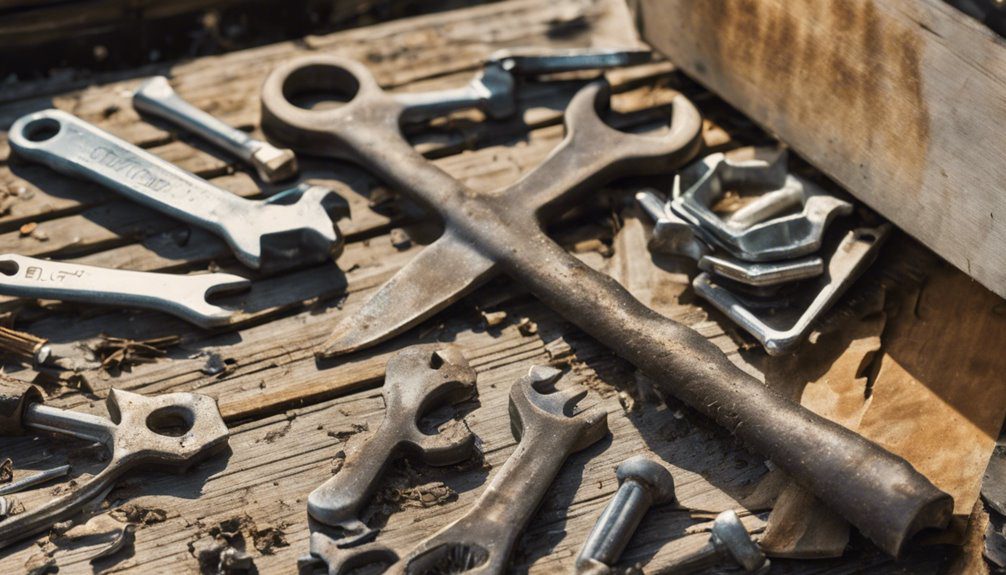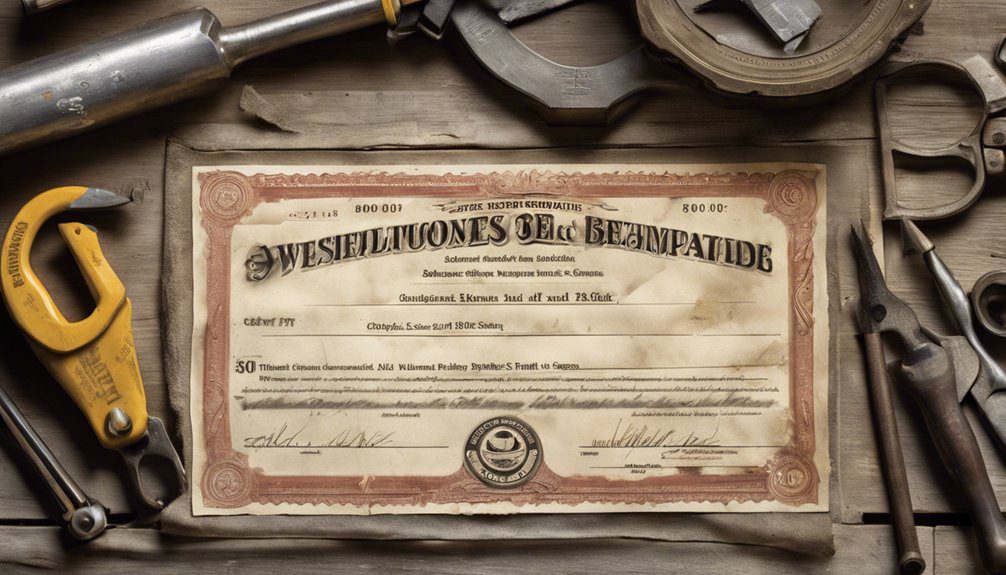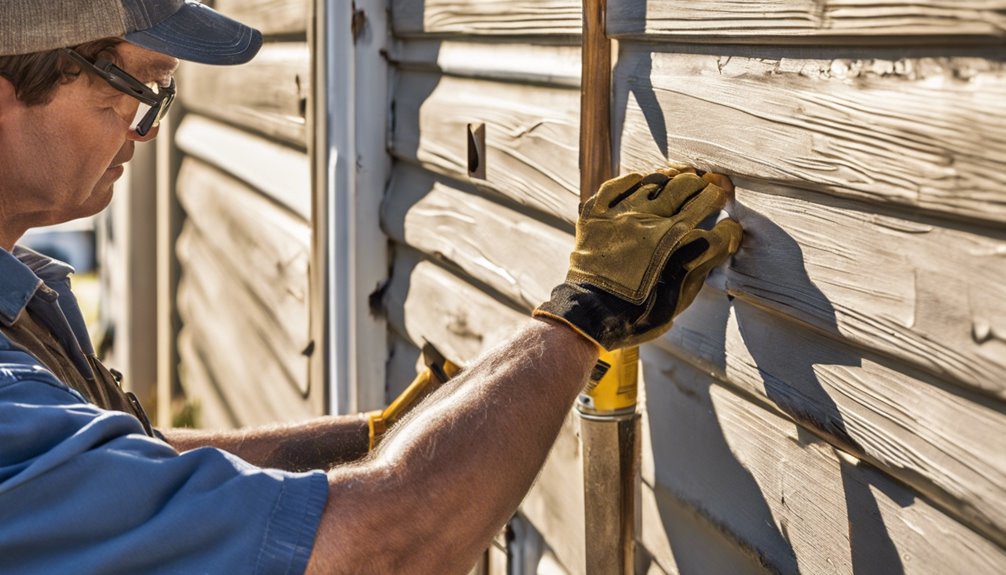If you're involved in the manufactured home repair industry in South Carolina, you've likely encountered the $5,000 bond requirement. This bond isn't just a formality; it plays a significant role in your ability to operate legally and protect your clients. Understanding its purpose and the application process can be crucial for your business's credibility and success. Yet, many still overlook the implications of not having it. What happens if you choose to bypass this requirement? Let's explore the potential consequences and benefits that come with compliance.
Understanding the Bond Requirement

When it comes to operating as a manufactured home repairer, understanding the bond requirement is crucial. A bond serves as a financial guarantee that you'll adhere to state laws and industry standards. It protects your clients by ensuring they've recourse if things go wrong. Without this bond, you could face legal challenges or financial penalties if a customer claims you didn't fulfill your obligations.
You'll need to obtain a $5,000 bond to operate legally. This amount isn't arbitrary; it's designed to cover potential claims against your work. It's essential to find a reliable bonding company that can assess your qualifications and provide the bond you need. The process typically involves a background check and may require you to demonstrate financial stability. Additionally, the bond ensures compliance with state-specific regulations, providing further protection for both you and your clients.
Understanding your bond's renewal requirements is also important. Most bonds need to be renewed annually, and failing to do so can jeopardize your ability to work legally.
Make sure you keep track of expiration dates and maintain your bond in good standing. By grasping these essential aspects of the bond requirement, you can build trust with your clients and ensure a smooth operation in your repair business.
Purpose of the ,000 Bond
Typically, the $5,000 bond serves as a critical safety net for both you and your clients in the manufactured home repair industry. This bond helps ensure that you're financially responsible for any damages or disputes that may arise during your work. If a client feels unsatisfied with your repairs or if you fail to meet industry standards, they can file a claim against the bond to recover their losses.
Having this bond also boosts your credibility. Clients are more likely to hire someone who's bonded, as it demonstrates your commitment to professionalism and accountability. It reassures them that you're prepared to take responsibility for your work.
Furthermore, the bond can protect you from potential financial risks. If a dispute arises and you're unable to resolve it quickly, the bond provides a source of funds that clients can access. This not only helps maintain your reputation but also reduces the likelihood of costly legal battles.
In essence, the $5,000 bond acts as a safeguard, fostering trust between you and your clients while providing peace of mind. By having this bond in place, you're setting a solid foundation for a successful and trustworthy business relationship. Additionally, understanding the contract bonds available can further enhance your business's compliance and reliability in the industry.
Who Needs the Bond?

Many professionals in the manufactured home repair industry need the $5,000 bond to operate legally and build trust with clients. If you're a manufactured home repairer, this bond is essential for you. It protects your clients against potential financial losses due to your negligence or failure to meet contractual obligations.
Contractors, subcontractors, and even sole proprietors involved in repairs, renovations, or maintenance of manufactured homes are typically required to secure this bond. Without it, you may face legal challenges that could jeopardize your business.
In addition, lenders and insurance companies often require you to have this bond to ensure you're committed to adhering to industry standards. If you're just starting your business or looking to expand your services, obtaining this bond can give you a competitive edge.
Landowners and property managers may also require you to show proof of this bond before hiring you for repairs. It demonstrates your professionalism and reliability, which can lead to more job opportunities. Furthermore, securing this bond can help you comply with state-specific regulations, ensuring that you meet the legal requirements necessary for operation.
Application Process Overview
Applying for a manufactured home repairer bond is a straightforward process that can save you time and hassle.
First, you'll need to gather the necessary documents, which typically include your business license, proof of experience, and any certifications relevant to the industry. This information helps establish your credibility and ensures you meet the state's requirements.
Next, you'll fill out an application form, which you can usually find on your bond provider's website. Make sure to provide accurate information, as any discrepancies can delay the approval process.
After submitting your application, the bonding company will conduct a background check to assess your financial history and reliability.
Once you've passed the evaluation, you'll receive a quote for the bond premium. It's essential to review this carefully to understand your obligations.
After agreeing to the terms, you'll make your payment and receive your bond documents.
Bond Costs and Fees

Understanding bond costs and fees is crucial for budgeting your manufactured home repairer business. When you apply for a $5,000 bond, the premium you'll pay typically ranges from 1% to 15% of the bond amount. This means you could be looking at a cost anywhere from $50 to $750, depending on various factors, including your credit score, business experience, and financial stability.
In addition to the premium, be aware of other potential fees. Some bond providers may charge application fees or service fees, which can add to your total expenses. It's wise to ask for a full breakdown of costs upfront, so you aren't caught off guard later.
Keep in mind that bond rates can fluctuate based on market conditions. If you have a strong financial background and good credit, you might secure a lower rate, which can save you money in the long run. Understanding your creditworthiness is essential as it plays a significant role in determining bond costs.
Always compare quotes from multiple surety bond providers to find the best deal tailored to your specific needs. By planning for these costs, you can ensure your manufactured home repairer business remains financially viable and compliant with state regulations.
Benefits for Repairers
Securing a manufactured home repairer bond offers numerous advantages that can enhance your business's credibility and operations. First, having this bond demonstrates your commitment to professionalism and ethical practices. Clients feel more confident knowing you're financially backed, which can lead to increased business opportunities.
Additionally, the bond can serve as a marketing tool. By showcasing your bond status, you set yourself apart from competitors who may not have one, giving potential customers peace of mind. This can lead to a higher volume of referrals and repeat business, ultimately boosting your bottom line.
Moreover, the bond helps protect you from potential legal issues. If a dispute arises with a client, the bond can cover costs related to claims, ensuring your finances remain intact. This can save you time and resources, allowing you to focus on your work rather than litigation.
Lastly, maintaining a bond can positively influence your relationship with suppliers and subcontractors. They may view you as a more reliable partner, which can lead to better terms and conditions for your business. Additionally, immigration consultant bonds provide financial protection for clients against potential losses due to consultant negligence or fraud.
Consumer Protection Measures

A manufactured home repairer bond plays a crucial role in consumer protection measures, ensuring that clients receive quality service and peace of mind. When you hire a repairer who holds this bond, you're safeguarding yourself against potential financial loss due to subpar work or unethical practices. This bond acts as a financial guarantee that the repairer will adhere to industry standards and regulations.
If a repairer fails to deliver satisfactory work or violates your contract, you can file a claim against their bond. This process allows you to seek compensation for any damages incurred, giving you a sense of security in your investment.
Additionally, knowing that a repairer is bonded often encourages them to maintain high standards of service, as their reputation and ability to work are at stake.
Moreover, the bond serves as a buffer against fraudulent activities. You can feel confident that the repairer is less likely to engage in dishonest practices when they know they're financially accountable for their actions.
In essence, the bond not only protects your interests but also promotes a culture of professionalism and integrity within the manufactured home repair industry. Furthermore, the bond is regulated by the Illinois Department of Financial and Professional Regulation, ensuring compliance and oversight in the industry.
Common Challenges Faced
While a manufactured home repairer bond offers valuable protection, it's important to recognize that not all repair experiences are smooth. You might encounter several common challenges that can complicate your work.
One major issue is dealing with unexpected repairs. You may think you've identified the problem, only to discover underlying issues that require more time and resources than initially planned.
Another challenge involves communication with clients. Misunderstandings can arise about the scope of work, timelines, and costs. It's crucial to manage expectations and keep clients informed throughout the repair process.
Additionally, finding reliable suppliers for parts can be tough. Delays in receiving materials can stall your work, frustrating both you and your clients.
Lastly, regulatory compliance can be daunting. Keeping up with local codes and regulations is essential, but it can be overwhelming, especially if you're busy with multiple jobs.
Navigating these challenges requires diligence and adaptability. By being aware of these potential hurdles, you can better prepare yourself to handle them effectively, ensuring a smoother repair process for you and your clients.
Tips for Compliance

To ensure compliance with local regulations, staying organized and proactive is key. First, familiarize yourself with all relevant laws and regulations governing manufactured home repairs in your area. Keep a checklist handy to track required permits, inspections, and documentation.
Next, maintain accurate records of all your projects. Document contracts, invoices, and communications with clients. This not only keeps you organized but also provides evidence of your compliance efforts should you face any inquiries.
Regular training is essential. Make sure you stay updated on best practices and any changes in regulations. Attend workshops or online courses to enhance your knowledge and skills.
Establish a reliable network of suppliers and subcontractors. Collaborate with professionals who understand compliance requirements, ensuring that every aspect of your work adheres to local standards.
Conclusion
In summary, the SC Manufactured Home Repairer $5,000 bond is essential for anyone in the repair industry. It not only helps you stay compliant with state laws but also builds trust with your clients. By securing this bond, you safeguard your business and provide peace of mind to those you serve. Remember, staying informed about the application process and costs can make a significant difference in your success. Make the commitment to professionalism today!

